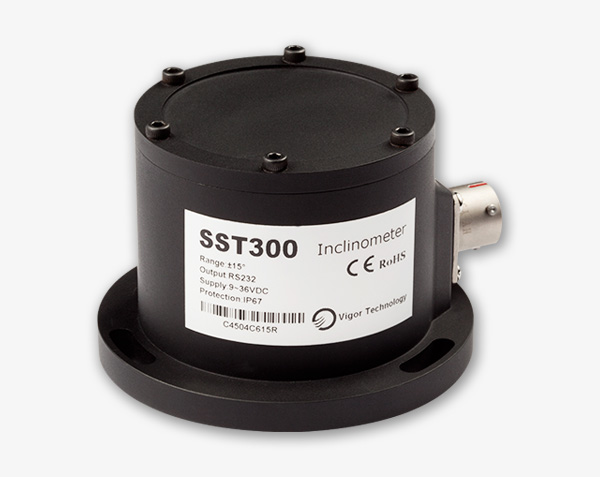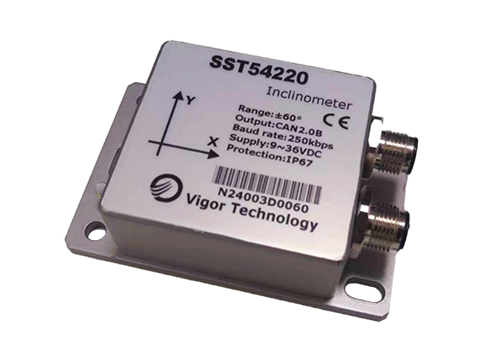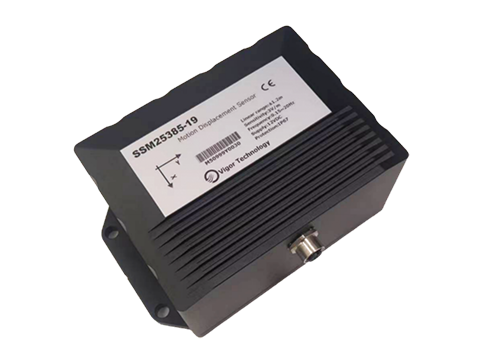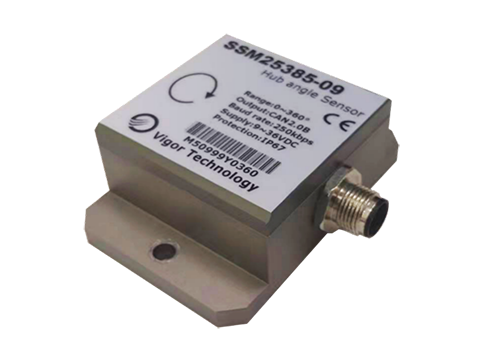MEMS Inclinometer
SST300 CAN Inclinometer Sensor
- INQUIRY
. Axis: 1 or 2 axis
. Range: ±60°
. Accuracy: ±0.01
. Resolution: ±0.0025°
I. Main Features
ISO11898-2 compliant, twisted pair output
Support CAN2.0A, CAN2.0B protocol
Built-in high speed optical isolation
Supports a total of 15 standard CiA recommended baud rates from 5k to 1Mbps
Up to 10 km transmission distance, up to 127 tilt sensor
Patented tilt measurement technology for true high precision tilt measurement
Available for customizable and OEM service
II. General Description
In addition to meeting the ISO11898-2 standard, the CAN tilt sensor has powerful tilt measurement capability:
±0.02% FS linearity
±0.005° zero offset value
Compatible with gyroscope modules for static and dynamic angle measurement, as well as fast coarse adjustment and precise fine tuning.
Compatible with the vibration module, real-time high-speed FFT operation, directly output vibration frequency and amplitude data, eliminating vibration effects.
Cooperate with GPS module to realize data synchronous acquisition and position monitoring in different installation positions.
Internally enhanced advanced intelligent algorithm, which can greatly reduce the horizontal axis error, improve the actual inclination measurement level, and abandon the traditional understanding of the accuracy of the inclination measurement.
Patented error calculation and test calibration method to greatly improve the actual inclination measurement accuracy and product reliability.
Significantly reduce the measurement error caused by the inconsistency between the actual tilt direction and the sensor's sensitive direction during installation.
Internally added protection measures such as short circuit, transient voltage, and anti-access protection to adapt to the industrial environment.
The user can set various parameters of the sensor through the CAN interface and query the sensor's factory data.
Proprietary tilt measurement technology and manufacturing process that have been rigorously tested in various industrial and military fields around the world, especially in Europe and America.
The CAN tilt sensor supports the ISO11898-2 standard slave-point protocol for point-to-point or point-to-multipoint communication. The working mode supports three modes: single query transmission, continuous transmission, and parameter setting. The user can configure the CAN interface, and can set the zero point, baud rate, local gravity acceleration value, zero position correction, vibration suppression filter coefficient, ID address and refresh rate of the tilt sensor through the CAN interface.
The CAN transmission speed is 5k~1Mbps, which can support 127 nodes in a single bus network consisting of one twisted pair cable, and the maximum carrying line length is 10km. With a variety of recommended options (CAN-fiber converters, etc.), high data rates can be maintained over long distances.
III. Specifications
Download SST300 CAN Inclinometer Datasheet
IV. Applications
. Factory A utomation, instrumentation, agricultural Machinery, construction machinery;
. Industrial measurement and control network, medical equipment, civil engineering, rail transit.
Applications
- Inclinometer Sensors for Dam Health Monitoring And Dam Deformation Monitoring
- TMS Intelligent Transmission Tower Safety Monitoring System Solution
- Applications of Vigor Sensors in Wind Turbine Installation and Health Monitoring
- Communication or Telecom Tower Safety Monitoring Solution with Inclinometers and Sensors
- Application of Inclination Sensor on Telescopic Handler for Tilt Monitoring
Contact Us
Contact: Vigor Technology
Phone: +86 18017387742
Tel: +86 021-58404921
E-mail: sales@vigordigital.com
Add: Block H1, No. 161, Lane 3188, Xiupu Road, Pudong New District, Shanghai



